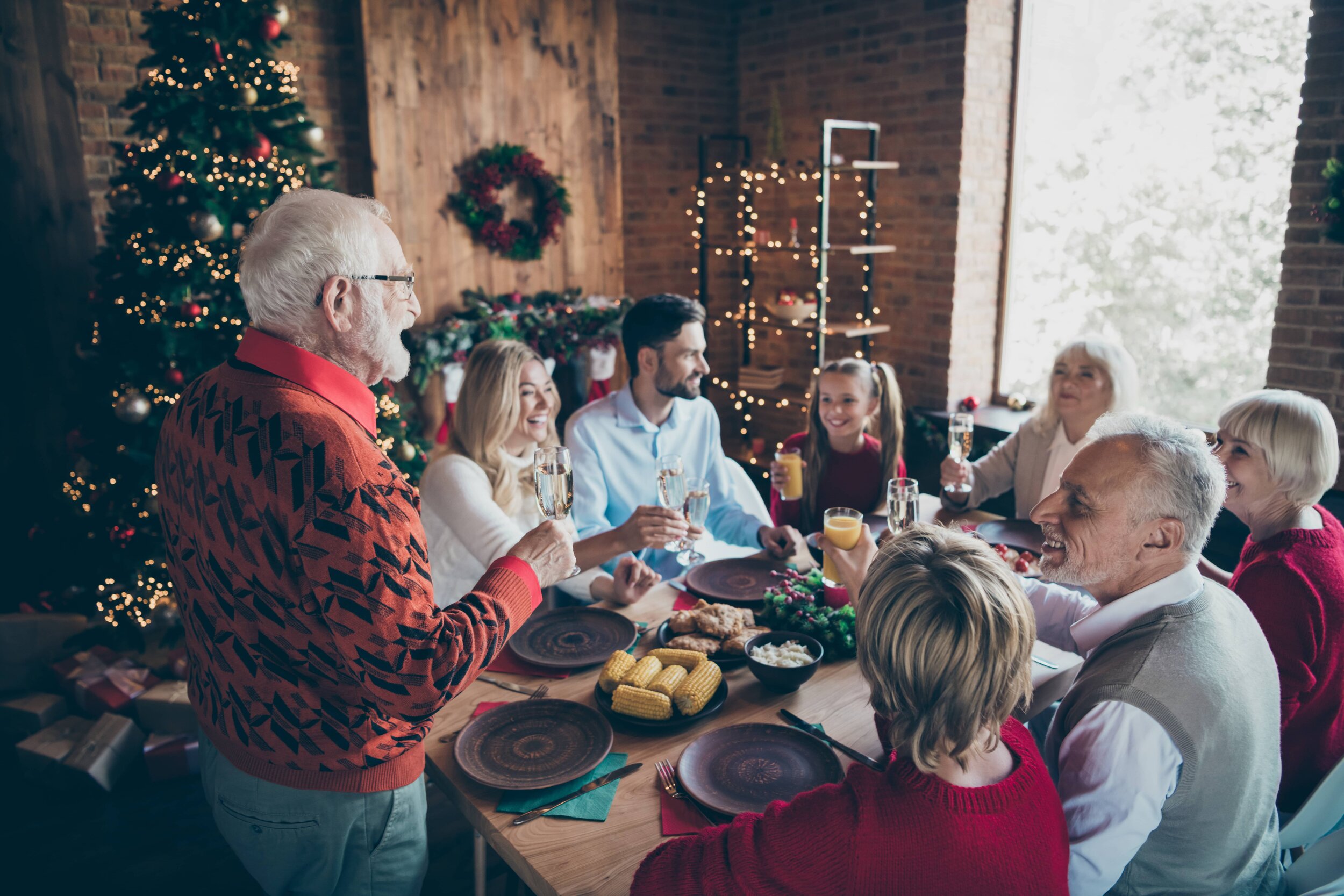The Importance of Family Traditions
The holiday season is an excellent time to engage in long-held family traditions, or a fun chance to make up some new ones. Traditions help to bond families and can have many benefits for parents and children alike. Aside from being a lot of fun, traditions give us something to look forward to, something fun to reflect upon, and a satisfying way to engage meaningfully with those we love. Traditions are especially great for children as they bolster essential aspects of child development and strengthen family unity while creating loving memories for life. Traditions can help to cultivate a happy, healthy, and fun emotional climate for your family and are a great way to increase family cohesion while sharing joy with the ones you love.
Traditions can be any combination of stories, beliefs, rituals, and customs that your family maintains and passes on from one year to the next (and one generation to another). We use these rituals to mark certain celebrations or signify meaningful events. These actions promote a sense of bonding and group identity and help children to feel included and safe. Children crave warmth and joy, and they love repetition and knowing what is expected and what comes next. Traditions check all of those boxes and more, giving a consistent, predictable, and joyful way to engage as a family. The routine and rhythm of traditions in a child’s life can be comforting and soothing, especially when the rest of life can be so unpredictable.
These rituals can help to shape personal and group identity in children as well. Many traditions have cultural, regional, and or religious/spiritual roots and may help to introduce or reinforce fundamental values that your family holds dear or wants to instill in children. Traditions are a great way to celebrate your cultural heritage and also a fun time to express your family’s uniqueness. These behaviours can also be a thoughtful way to honour those we love that have passed. Making a late grandma's cookies every Christmas might help to keep her spirit alive in a sweet way. Honouring a tradition of a loved one who has passed allows you incorporate the memory of someone who is no longer with you while providing an opportunity to tell little ones more about someone they may not have known or remember very well. Explain to your kids the history of traditions if they are ones that are passed down. Talk about what it was like for you as a child to do them and how those traditions made you feel.
Family traditions are wonderful things; it is a shame to relegate them to only one season or major holidays. Try to think about ways you might incorporate traditions into the rest of your year, as well. You might even have some you can do monthly, weekly, or daily. In many ways, a bedtime routine is a bit of an everyday tradition. Sitting down to dinner together as a family and sharing your day, or giving thanks together, is another lovely ritual for a family to practice. Some traditions are more unique or silly, like an after-dinner dance party or wearing a funny outfit to breakfast on Sundays. Get your kids involved in the genesis and execution of new family traditions - they might surprise you with their creativity!
While traditions can be funny and lighthearted, there is growing research that they also may have meaningful and lifelong benefits for children. There is even some research to suggest that engaging in routines, rituals, and traditions may be associated with advancing language and social skill development and might correlate with academic achievement. (Spagnola & Fiese, 2007). No genuine causal relationship between these things can be drawn; however, research suggests that routines and traditions might be an essential part of the organizational structure of a healthy and happy family dynamic. This secure and emotionally supportive family structure does causally affect these previously mentioned favourable developmental outcomes. Other research suggests that traditions can increase family relationship coherence, which, in turn, can affect many aspects of the developing child as well as the closeness of the parent-child relationship.
The holiday season can often be overwhelming. It might seem like there's no time for you to meaningfully connect with your family in the midst of everything on your to-do list. That is why this special time of year is an excellent opportunity to start or re-instate some traditions in your home. They don't have to be elaborate or expensive or time-consuming; they just have to have meaning and be shared together. These rituals not only provide structure and joy to help to mark the passage of time, but they also create an opportunity to infuse cultural and personal significance into a hectic time of year that can often be chaotic and too commercialized. This year, take some time to slow down and mindfully engage in some rituals that make it easy for your family to celebrate what is really important - each other.
References and Resources
Family traditions are important to a child’s wellbeing. Childhelp website: https://www.childhelp.org/blog/traditions/
Fiese, B. H., Foley, K. P., & Spagnola, M. (2006). Routine and ritual elements in family mealtimes: Contexts for child well-being and family identity. New Directions for Child and Adolescent Development, (111), 67–89. https://doi.org/10.1002/cd.156
Spagnola, M., & Fiese, B. H. (2007). Family Routines and Rituals: A Context for Development in the Lives of Young Children. Infants & Young Children, 20(4), 284–299. https://doi.org/10.1097/01.IYC.0000290352.32170.5a
The Importance of Family Traditions | Kids Village. from https://kidsvillage.com/importance-family-traditions/

